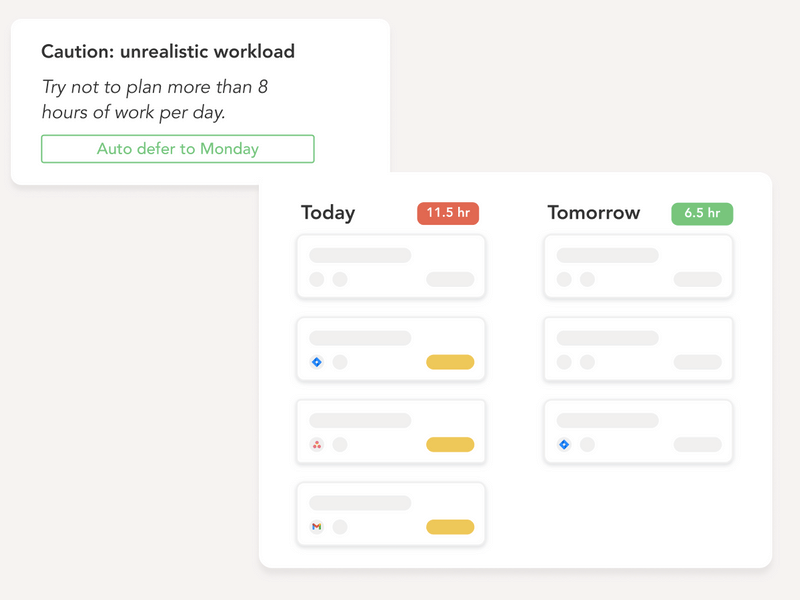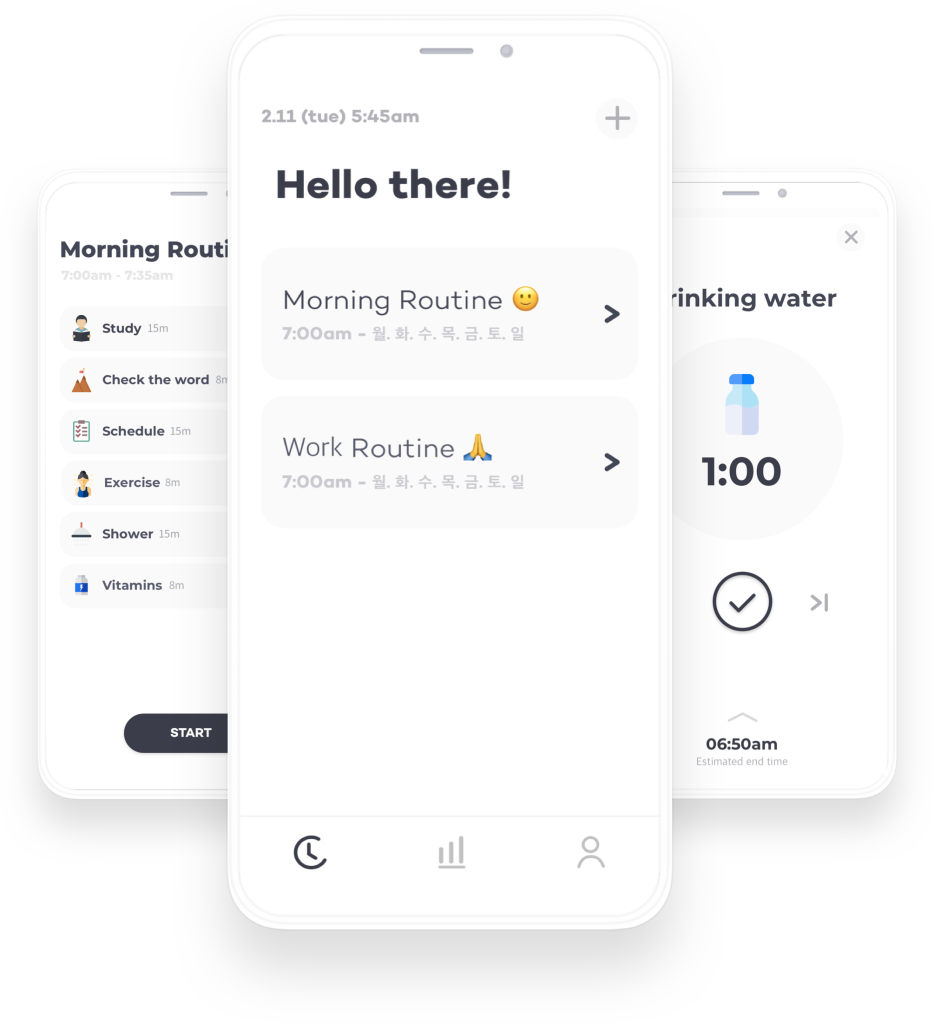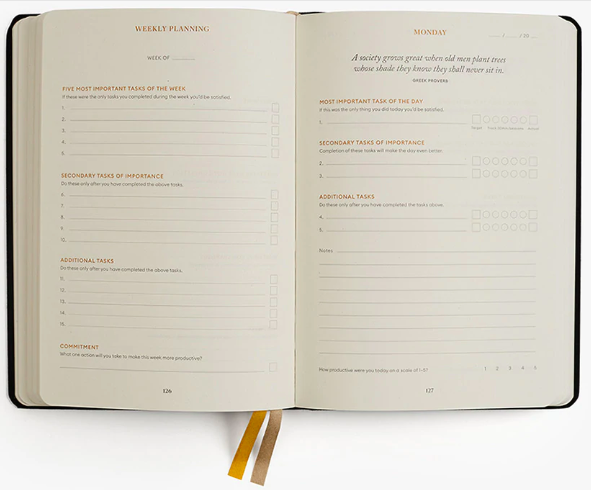If you know anything about ADHD, you know that the tools we use to keep our brains on track get a little less… shiny overtime. When I created my first ADHD survival guide, I knew that it wouldn’t be my last, because as ADHDers, we have to upgrade our systems on a regular basis.
Of course, what I didn’t expect was that a global pandemic would bring every ADHDer I know to their knees.
Many of us began working remotely, which surely has advantages, but also happens to be the place we’re most likely to get distracted. And being confined to our homes has complicated the ways we typically separate work, play, and rest. These are new challenges even for The Neurotypicals™, but for the neurodivergent among us, this is operating on hard mode.
For me personally, I hit a wall this past year known as “ADHD burnout.” When I talked about it on Twitter, it seemed to resonate with a lot of you, too. ADHD burnout describes a cycle of overcommitting, underdelivering, and anxious-avoidance that results in shame, depression, and exhaustion for so many ADHDers.
In other words? We take on too much, we procrastinate for too long, and suddenly we’re unable to do anything.
This is the wall that I slammed head first into at my last job. And when I did, I couldn’t seem to get any work done despite my best efforts. I was done. My brain was scrambled, my boss was disappointed, and I watched everything I’d built professionally come toppling down.
I felt like a failure. And even that wasn’t enough to motivate me.
Neither of us are failures, though.
If this pandemic has completely derailed your ability to get stuff done, you aren’t alone.
A lot of us have relied on that last minute adrenaline and self-deprecation to motivate us in the past. And here’s an unfortunate fact about relying on adrenaline and bullying to fuel us: it was never going to be sustainable, was it?
It was never reasonable to expect ourselves to do everything at the last minute, and to shame ourselves repeatedly when we did, for the rest of forever. So let’s let go of that illusion, shall we? When it worked, it worked (well, sort of). But it wasn’t going to work forever.
And certainly not during a global trauma, my friends.
It makes sense that your tools need a refresh. Mine did, too. So I set out to do the research, again, on how to create a system that worked for me. And this time, I came up with some tools that I knew I had to share.
So how did I manage to get my sh!t together all over again? These are the tools I used that I’m hopeful can help you, too.
A quick disclaimer before we start…
I’m committed to only recommending products that I’ve used myself and stand by.
While I do include affiliate links in this post, I was not paid to include any product on this list — I selected each of them personally because I’ve seen them work both for myself and my coaching clients!
Affiliate links are a great way to support this (free) blog, though, so I hope you’ll consider using the links provided if you decide to sign up for an app or purchase a book. You can also help keep the blog alive by donating via Patreon. Thanks in advance for your support. 💛
1. For pushing through procrastination: Centered.
I can’t emphasize enough how much Centered has helped me (and a lot of my coaching clients, too).
Centered, in short, takes your tasks for the day and turns them into a focus music playlist. There’s also a digital coach overlaid on your music, prompting you with reminders of how long you’ve been working, and gently nudging you when you navigate away from the window you’re supposed to be in. It also silences your notifications for you, to ensure you’re able to concentrate to the fullest.
Centered is designed with neurodivergent brains in mind, creating the ideal circumstances for deep work with a layer of accountability to keep you on task.
Centered takes away the guesswork of “how the heck do I focus right now?” It sets you up for success by coaching you through difficult moments, and helping you organize your tasks in a sensible way. It also includes breathing exercises, reminders to look up from your screen, and so many other thoughtful details that will make your working experience more enjoyable.
In short, this is for you if: You just. Can’t. Focus. This app helps to instill good working habits and removes distractions for you to do your best work.
Pricing: Centered offers both a free and premium version (the latter of which is $10 per month).
Hey, wait! There’s a bonus offer! Centered is offering three months of their Premium version for FREE if you sign up at my link: centered.app/sam, or use the promo code “SAM.”
2. For organizing my day: Sunsama
I’m going to be brutally honest about Sunsama: I didn’t think I was going to like it. When they initially reached out to me to check out their app, I ignored them for several weeks. (In my defense, I get a lot of “look at this app!” emails, and they’re rarely ADHD-friendly.)
It looked like every other app promising that it could do everything for you. But after one too many unruly to-do lists and not really understanding how to budget my time, I decided to try it. And y’all, it’s amazing.
Sunsama is a daily organizer and calendar that integrates with several of the major apps people use for their workflow, including Google calendar, Gmail, Asana, Trello, Notion, Todoist, Slack, and more.
It basically gathers all the apps you’re using, streamlines the information, and helps you build your to-do list for the week.
My favorite function is that I can check my email and calendar directly in Sunsama, and then I can literally drag and drop individual emails and events directly into my to-do list. No more forgetting to respond to high priority emails — it’s linked directly in my to-do list, along with all my events for the day.
It’s all in one list! It kind of rules.
In short, this is for you if: You’re someone that relies on a lot of different apps for your job — this is the one that will make your life ten times easier (at least). This is also for you if you rely on a to-do list to get things done, but need help organizing your time.
Pricing: It’s about ~$20 a month, which is pricier than some other to-do apps (but they often have much fewer integrations and capabilities).
I’m an affiliate! If you’d like to support this blog while supporting yourself, sign up using this link.
3. For creating accountability: Focused.
Getting out of bed in the morning and starting my day is the hardest part of ADHD, at least for me. So when I heard about focused., I knew I had to try it.
Focused, an online community for accountability, has been immensely helpful in shaping my mornings. Focused offers several morning meetings in different timezones for members to sign onto, offering direct planning support to those of us who need it.
Each morning, you’ll join a community of focusers to meditate, set your goals for the day, and block off time on your calendar to complete your tasks. You’ll then have the option of sending your goals to a group facilitator, who will email you at the end of the day to see if you’ve completed your goals.
There are also focused work sessions, where folks join and turn cameras on to work alongside each other.
In my experience, it’s a supportive, thoughtful, and caring community. And as a freelancer who doesn’t answer to a manager, having the extra layer of accountability has been a huge help in getting me going every day.
In short, this is for you if: You thrive from direct accountability and working alongside others.
Pricing: For $29 dollars a week, you get access to the wakeup calls as well as the focus sessions. I personally think the buy-in is important to ensure that you show up and take full advantage of the membership, and it helps support the amazing team that runs the calls!
Oh cool, a bonus! Using this link, you can get your first week for five dollars!
4. For keeping a routine: Routinery
The first thing that I abandoned when the pandemic hit was my routines. Which, let’s be real, weren’t very consistent to begin with. Thankfully, I’ve been able to get back on track using Routinery.
Routinery allows you to set up a “playlist” for your routines, walking you through each task with a timer and a visual cue. The visual cues are amazing for neurodivergent brains, and the timer helps keep ADHDers on track by increasing time awareness. It also tracks your “streak” (how many days in a row you complete your routine) for some added incentive. The science behind this app is legit.
I personally use this app to set up “basic” and “bonus” routines for morning and night. My basic routine is for when I’m low energy and just need to get the essentials out of the way. My bonus routine is for when I have more spaciousness and energy, and want to luxuriate a little more while I’m doing my routine (for example, having an elaborate skincare routine doesn’t work every night, but I include it in my bonus routine for the nights I do have the time!).
In short, this is for you if: You struggle to stick to a routine, and would benefit from an app that offers visual cues as you complete your routine.
Pricing: There are various plans available, from $2.99 per month to $21.99 per year. You can also change your plan at any time!
5. For gamifying tasks: Hatch Focus and Focus Noodles
A lot of folks with ADHD benefit from gamified apps (put another way, apps that take our everyday tasks and make them feel like a game). Gamified timers are a great option, as they help to keep our attention on the task at-hand while offering us a reward for maintaining our focus.
Two timers that do this well are Hatch: Focus and Focus Noodles. In Hatch: Focus, each block of time that you focus for results in a quirky critter emerging from an egg. With Focus Noodles, each block of time results in cooking a ramen dish, which levels up your chef.
The design of these apps is especially helpful for those of us who gravitate toward picking up our phones for that much-needed dopamine. Both apps have ways of deterring users from using their phone during the focus session (the egg won’t hatch or the ramen won’t cook). It’s a fun way of keeping yourself from getting distracted as you work.
In short, this is for you if: You like gamified apps to keep you on task.
Pricing: These apps appear to be free! Hooray!
6. For developing new skills: Brain Hacks by Lara Honos-Webb
This book is required reading for anyone with ADHD. Lara Honos-Webb, a clinician who really gets ADHD, has written a number of books on the subject — and Brain Hacks: Life-Changing Strategies to Improve Executive Functioning is my favorite by far.
The book is organized by different challenges that ADHDers have, with strategies to tackle each of them. There’s also a quiz at the beginning of the book to see what areas you’re most in need of improvement.
What I really enjoy about Brain Hacks is that you can flip to any page in the book and find a useful strategy. It’s not a book you’ll ever need to read cover-to-cover (though you totally could!).
In short, this is for you if: You’re looking for practical strategies to improve your executive function.
Pricing: This book is $13.79 on Bookshop.
I’m an affiliate! If you’d like to support the blog while supporting yourself, purchase the book here.
7. For better sleep: Sleep With Me Podcast
The stress of the pandemic absolutely killed my sleep schedule. Without Sleep With Me Podcast, I don’t know what I would do.
Sleep With Me is a unique podcast that’s hard to describe. It’s a friendly-but-boring voice, rambling in circles in a silly, entertaining (but not too entertaining!) way, to help ease you into sleep. While it didn’t work for me the first couple of tries, I stuck with it, and now I reliably fall asleep within a few minutes every night. It’s seriously like magic.
In short, this is for you if: You have trouble sleeping and need a little company in the deep, dark night.
Pricing: It’s a free podcast available wherever you listen to podcasts.
8. For paper-based planning: the Productivity Planner
I’ve included a lot of apps here, but for those of us who are a little more old fashioned, the best planner I’ve found by far is the Productivity Planner by Intelligent Change.
The planner helps you organize your weekly and daily goals, and uses a pomodoro tracker to help you focus in on each task. It increases time awareness, too, by having you estimate the amount of time a task will take and writing in the time it actually took. For ADHDers struggling with time awareness, this planner will literally train your brain into better estimations over time.
In short, this is for you if: You prefer analog solutions for planning your day, and need a little help structuring your tasks. OR, if you find yourself rotating between apps and planners, and want the additional option. This planner is dateless, so you can come back to it whenever without having to purchase a new one.
Pricing: $30. Seriously worth every cent.
9. For a tidier, less overwhelming home: Cleaning Sucks by Rachel Hoffman
Cleaning your home, especially after letting it go for a while, is intimidating as eff. Plain and simple. But Cleaning Sucks by Rachel Hoffman makes it a little easier on our brains. This guided journal walks you through different projects in small, manageable chunks, and invites you to reflect on the process with space to write.
I recommend this journal for anyone who is throwing their hands up with no idea where to begin. The gentle advice and straightforward prompts makes cleaning up feel like a doable project instead of an unruly disaster. It does require some commitment, but it’s a commitment that feels easier to make because of how approachable the journal is.
In short, this is for you if: You want to clean your space but have no idea where to start.
Pricing: $14.71 if you purchase via Bookshop.
I’m an affiliate! If you want to support the blog while supporting yourself, buy the book via this link.
Remember: Productivity isn’t about perfection.
Too often, talking about “productivity” becomes a smokescreen for masking our perfectionism.
But to me, productivity doesn’t mean you meet every goal you set and complete every task on your to-do list! Rather, I think of productivity as a feeling of efficacy — feeling empowered while you work, knowing that you can shift your attention wherever it needs to be, at least for a little while.
Forget what capitalism has told you about the hustle and grind. Productivity, from a neurodivergent perspective, is about having more agency, being able to focus on our own terms.
Too often, our brains are in the driver’s seat, steering our attention in all sorts of directions (and almost never in the direction we’d like to go). Productivity, then, is about reclaiming our attention and being able to direct it as we choose.
So many ADHDers are waiting for a magic bullet. I wish I could provide that, but alas, as I’ve said many times before, there isn’t one. Rather, there’s a big ol’ bucket of tools that we can pull from throughout our lives, mixing and matching as the circumstances require us to. This guide is one such bucket you can pull from to hopefully steer you back on track.





Reblogged this on cabbagesandkings524 and commented:
Sam shares a some things that helped.
LikeLiked by 1 person
This is everything i needed to hear! ESPECIALLY THE ADHD BURNOUT & trying to come out of it and doing an apology tour to my friends after pure exhaustion from family crisis and everything . love this keep it up! THANK YOU
LikeLiked by 2 people
I APPRECIATE THIS SO MUCH. Sometimes it’s a lot of work just to try out all these apps lol. But I love that there’s one that’s been tested by a fellow FOCUS’ed member and ADHD’er 😀
LikeLiked by 1 person